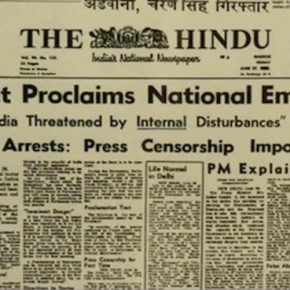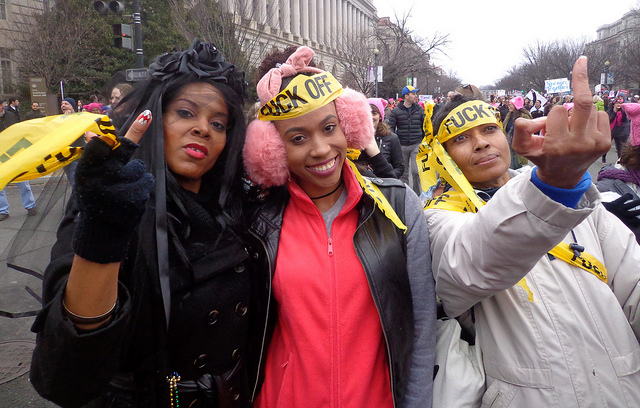In the wake of Brexit, we were told the vote was a great revolt by the white working-class. We were told it was grounded in racist discontent with an out-of-touch metropolitan elite. The Leave vote was entirely composed of ill-educated, poor racists living anywhere between the progressive bastions of London and Scotland. It’s worth asking what’s wrong with this view.
Too much bile has been directed towards the working-class for voting the wrong way. It’s as if Europhilic liberals cannot bring themselves to look in the mirror and examine the Remain campaigns for any failing. And the EU is left beyond scrutiny. Instead the working-class is supposed to play the scapegoat for an incoherent and lacklustre campaign strategy.
There are no legitimate reasons to advocate Brexit, in this view, the vote is simply an expression of racism and ignorance. Importantly, the European political terrain is increasingly split between liberalism and nationalism with each side helping to constitute the other. This basic antagonism has dominated the entire EU debate and, in turn, shaped the way the working-class has been tarred by middle-class journalists.
My first reaction was to characterise Brexit as a ‘fuck you’ vote. I still think it was, but not necessarily by people who have been left behind by globalisation. As Zoe Williams has pointed out, it was the Southern English middle-class that tipped the balance – not working-class Northerners. This should not be a surprise. Middle-class and elite votes play a major role in all elections, as they dominate the whole discourse, the media and political agenda.
No War Like Class War
By holding a vote, David Cameron hoped to resolve the tension within the ruling-class and his own party. He did not believe he could lose the referendum because he was so accustomed to winning on every occasion. There was no game plan for an exit. So when the men who had always won everything finally lost, they had no idea what to do – and they still don’t. But this is not the fullest account of the character of the vote.
Although the ruling-class was thinking of its own interests, the middle-classes and the working poor were significant actors. The breakdown of the Leave vote in ABC terms of class, not necessarily the best analysis, it must be said, shows 10 million upper/middle-class votes and 7 million working-class votes cast for Brexit. By contrast, the Remain vote was made up of 12 million upper/middle-class votes with around four million working-class votes.
Similarly, the base of UKIP is often wrongly described as working-class and eating into the Labour vote. Actually, UKIP has primarily threatened the Conservative Party, and often overtook it in Labour constituencies because so few locals would vote Tory. The UKIP base is petty-bourgeois with some elements of the poor and the rich backing them. Nigel Farage may be the first ultra-rightist to lead a party based on a cross-class alliance.
So we find the narrative of a working-class revolt is somewhat inaccurate. As in most votes, the working-class was present, but key roles were played by elite interests and middle-class votes. This is not to diminish the role of the votes cast by working-class people. Certainly, the grievances of the working-class were a significant factor. But the fact that the Leave vote was a convergence of different class forces should not surprise us.
Likewise, the vote was not a case of total white flight, though it is mostly. Around 33% of Asian voters opted for Brexit, alongside 27% of black voters. Again, this is not to explain away the role of the racism. After all, you can still cast a vote to limit EU migration on the grounds that the system privileges EU nationals over migrants from other parts of the world. This is why multiculturalism did not prevent Birmingham from voting for exit.
In fact, Nigel Farage often made this Commonwealth argument against EU membership. The basic idea goes that the UK should become closer to its former colonies and not the small cluster of European states. This reveals more than a scintilla of colonial nostalgia is present in the kind of nationalism invoked by Brexit campaigners. The wish to “get my country back” can take a variety of forms. It harks back to a dead empire.
The Left and Brexit
Still, the key question for the Left is the role of the working-class. There are those on the radical Left, who made the progressive case for British withdrawal from the EU. Veteran agitators such as Tariq Ali and George Galloway rank in the Lexit camp. Many other socialists found themselves sympathetic to this argument thanks to the EU’s austerity programme. Ultimately, the prospect of siding with Farage may have been too much to stomach.
Economist Paul Mason warned against a Lexit vote on pragmatic grounds: the timing was wrong, as the Left lacked a mass movement and leadership, to overhaul the status quo. One might wonder if the time is ever right. Others like John Pilger framed the Brexit vote as an “act of raw democracy” by millions of ordinary people. This repeats the idea that the working-class was in the driving seat and this vote was a “fuck you” to the ruling-class.
Not only is the working-class not in the driving seat, the sections of the poor which supported Brexit may well have done so out of nationalism. This does not mean that there was no left-wing element in the Leave vote, though it is a fact that the Left was divided over the EU – which, at once, stands for freedom of movement and neoliberalism. Naturally, working people fell on both sides of the debate too.
Yet the Lexit crowd wants to pretend that the working-class is vote was devoid of racism. This brings us to one of the classic fixations of the Left: if the working-class as a revolutionary agent, how is it that capitalism has not been overthrown? The easy answer is that it is deficient leadership on the part of trade unions and parties. While this may well be true, it does not rule out the possibility that the working-class is open to demobilisation, as well as reformist and reactionary politics.
If liberals are guilty of presupposing the inherent backwardness of the working-class, then a number of leftists can be criticised for claiming the working-class is inherently revolutionary or even communist already. The working-class has agency, and the potential for revolutionary agency, which means the choice is not between an unwashed xenophobic rabble and a red flag-waving proletariat.
Revolutionary Ideals
Obviously, class interests are not self-evident axioms. Classes are alive, they are not subject to test conditions, as they engage in the world and face changing social conditions. If working-class agency means anything, it means the ability to disagree and make independent choices. But this does not extend to the terms of the choice itself.
Even if the proletariat is not on the cusp of a great revolt, it is the Left that needs the working-class and, likewise, class politics is the only way forward for ordinary people. Left-wing ideals without class is a form of anti-politics. If a section of working people, or even a majority for that matter, are not mobilised by the Left, this would not vindicate those who say the poor are backwards.
It is worth acknowledging that the main demand of Leave voters was national sovereignty, whereas immigration controls was a secondary concern. Not that this changes the fact that the dominant character of the vote was nationalist. Sovereignty is one of those few ambiguous demands backed by radical elements across the spectrum. So we need to account for this ambiguity.
Nevertheless, the Left should not try to externalise racism from the working-class in a bid to save its own romantic view of the workers. The problem here is that it presupposes that the poor ought to have the right set of ideas in order for socialists to stand with them. It implies smug liberals would be right to sneer at the poor. In this sense, the constant yearning for a revolutionary agent collapses into its opposite.
Photograph courtesy of Garon S. Published under a Creative Commons license.





